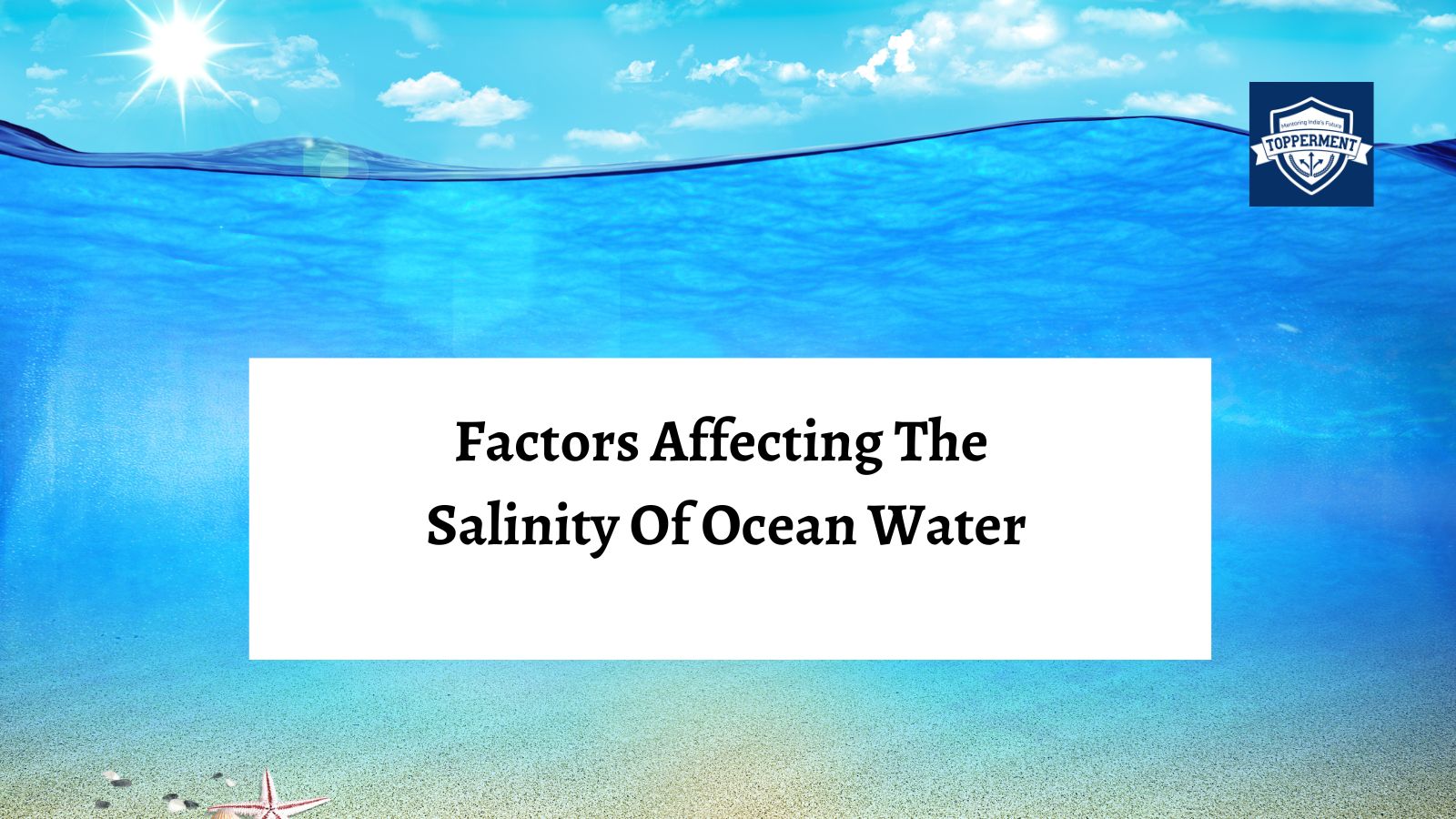
What Are The Factors Affecting the Salinity Of Ocean Water? | UPSC Geography
The salinity of ocean water refers to the concentration of dissolved salts in the water. It plays a crucial role in the ocean’s physical and chemical properties, including its density, freezing point, and ability to conduct electricity. The salinity of the seawater is influenced by various factors, which can be broadly categorized into natural and human-induced factors.
Evaporation
Evaporation is one of the primary natural factors that influence the salinity of ocean water. When seawater evaporates, only the water molecules evaporate, leaving behind the dissolved salts. This process increases the concentration of salts in the remaining water, leading to higher salinity. In tropical regions where evaporation is high, the salinity tends to be high compared to regions with lower evaporation rates.
Precipitation
Precipitation also effects the salinity of ocean water. When it rains, freshwater from the atmosphere is added to the ocean, diluting the salt content and reducing salinity. Areas with high precipitation, such as coastal regions have lower salinity levels due to the influx of fresh water.
River Runoff
River Runoff is one of the major factor impacting ocean water salinity. Rivers carry freshwater from land to the sea, which lowers the salinity of surrounding factors like rainfall, and human activities such as dam construction and irrigation. Areas near river mouths typically have lower salinity due to the freshwater.
Sea Ice Formation and Melting:
In polar regions, the formation and melting of sea ice play a vital role in ocean water salinity. During the freezing of seawater, the dissolved salts are excluded from the ice crystals, causing the remaining water to have higher salinity. When sea ice melts, it releases freshwater into the ocean, reducing salinity. These processes contribute to the formation of dense, cold, and saline water masses, which impact global ocean circulation.
Human Activities:
Human activities can also affect the salinity of ocean water, albeit to a lesser extent. Activities such as desalination, where freshwater is extracted from seawater, can increase the salinity of the remaining water. Additionally, the discharge of pollutants, industrial effluents, and agricultural runoff can alter the composition and salinity of coastal waters.
Also Read
- How yoga helps students in physical and mental health? | Yoga And Mindfulness
- National Postal Day: Celebrating the Unsung Heroes of Communication | TM Special
Follow Us For More Content On:
https://www.instagram.com/topperment/



